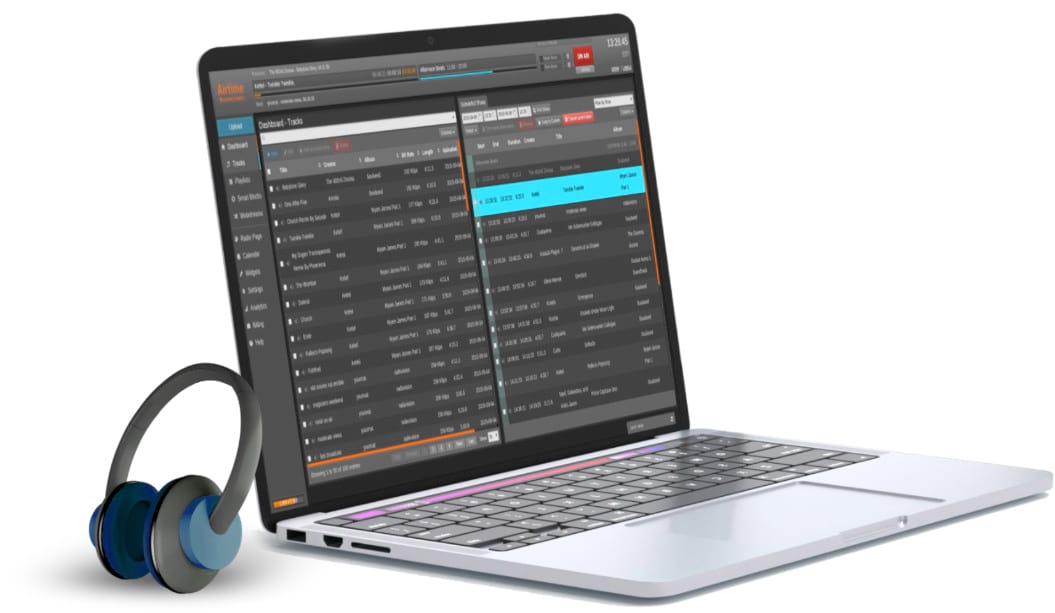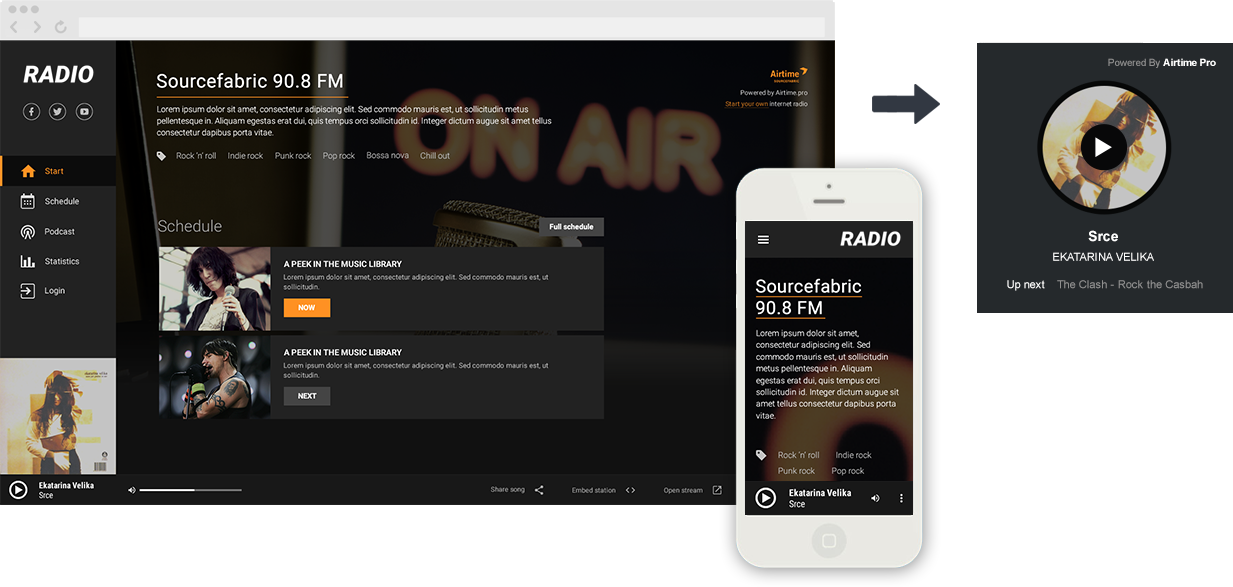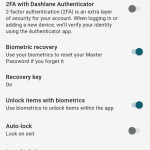To start up a radio station on the internet, first, choose a streaming platform. Create engaging content and promote it actively to attract listeners.
The digital age has revolutionized the way we consume media, making it easier than ever to start your own online radio station. With the increasing demand for unique and diverse content, launching a radio station on the internet can be a lucrative and rewarding venture.
By following a few simple steps, you can establish your station, reach a global audience, and share your passion for music, talk shows, or other forms of entertainment. In this guide, we will explore the essential steps to help you kickstart your internet radio station and bring your creative vision to life.

Credit: www.airtime.pro
Choosing The Right Format
When starting an internet radio station, choosing the right format is crucial. Decide whether you want to focus on music or talk radio. Consider the audience, as a niche vs. general approach. You can create a successful station by catering to a specific audience while ensuring appeal to a broader demographic.

Credit: m.youtube.com
Licensing And Legal Considerations
Starting up a radio station on the internet requires careful consideration of licensing and legal matters. Copyright laws play a crucial role in ensuring compliance and protecting intellectual property. It is essential to understand the various licensing options available to ensure that you are legally operating your online radio station.
Copyright laws protect the rights of creators and owners of original works, such as music, broadcasts, and other audio content. When starting a radio station on the internet, you need to obtain the necessary licenses to play copyrighted music and content. The licensing options include performance rights organizations (PROs) like BMI, ASCAP, or SESAC, which collect royalties on behalf of songwriters and publishers.
Another licensing option is obtaining a digital streaming license from organizations like SoundExchange, allowing you to stream legally. Understanding the different licensing options and ensuring compliance will help you avoid copyright infringement issues and potential legal consequences.
By obtaining the proper licenses and adhering to copyright laws, you can confidently start up an internet radio station and provide your listeners with high-quality and legally permissible content.
Setting Up Your Studio
To start up a radio station on the Internet, you will need essential equipment and software. Setting up a studio requires investing in quality broadcasting equipment such as microphones, headphones, and mixers. Broadcasting software is vital for managing and streaming your radio station online.

Credit: www.airtime.pro
Creating Engaging Content
To create an online radio station, focus on developing engaging content. Include a variety of programs to cater to different interests. Incorporate interactive features like listener requests and live chat for audience interaction. Regularly update programming to keep content fresh and engaging. Offer a mix of music, talk shows, and interviews to appeal to a broad audience. Encourage listener participation through polls, contests, and shoutouts. Provide valuable and informative content that keeps listeners coming back for more.
Building Your Online Presence
|
Starting up a radio station on the internet requires building a strong online presence. This involves two key aspects: website development and a social media strategy. For website development, focus on creating a user-friendly and visually appealing website. Ensure that the website is responsive and optimized for mobile devices. Utilize SEO techniques to improve visibility on search engines. Provide clear navigation menus and easy-to-find contact information. Alongside website development, a strong social media strategy is essential for promoting your radio station. Identify your target audience and create engaging and shareable content. Utilize popular social media platforms such as Facebook, Twitter, and Instagram to connect with your audience and share updates, playlists, and behind-the-scenes content. |
Monetization Strategies
For starting a radio station on the internet, advertising and sponsorship can be effective ways to generate revenue. You can offer advertising slots during your shows or podcasts, and seek out sponsors who are interested in reaching your audience. Additionally, membership and subscriptions can provide a steady income stream. Offering premium content or access to exclusive features can entice listeners to become paying members. This can help ensure a stable financial base for your station.
Promotion And Marketing
When it comes to launching a radio station, a solid marketing campaign is crucial for generating initial interest and awareness. Utilize social media and email marketing to reach potential listeners. Moreover, community engagement is essential to build a loyal following. Engage with local communities and organizations to create partnerships and promote the station. Additionally, host launch events and contests to attract attention. Use promotional merchandise and giveaways to create a buzz around the launch. Engaging with the community will establish a loyal listener base and create a strong presence for the station.
Navigating Technical Challenges
Starting up a radio station on the internet can be an exciting venture. However, it is important to be prepared for the technical challenges that may arise. One common issue that you may face is troubleshooting streaming issues. To ensure a smooth streaming experience for your listeners, you need to pay attention to audio quality. Make sure you have a reliable internet connection and invest in a good quality microphone. Additionally, it is important to choose the right streaming platform that can handle the bandwidth and demand of your station. Be mindful of any compression or latency issues that may affect the audio quality. By addressing these technical challenges upfront, you can create a successful and enjoyable radio station on the internet.
Conclusion
Starting up a radio station on the internet may seem daunting at first, but with the right tools and strategies, it can be a rewarding endeavor. By carefully selecting the right broadcasting platform, creating engaging content, and promoting your station through social media and other channels, you can attract and retain a loyal audience.
Remember to continuously analyze and adapt your approach based on audience feedback to ensure long-term success. So, why wait? Take the leap and start your own internet radio station today!









